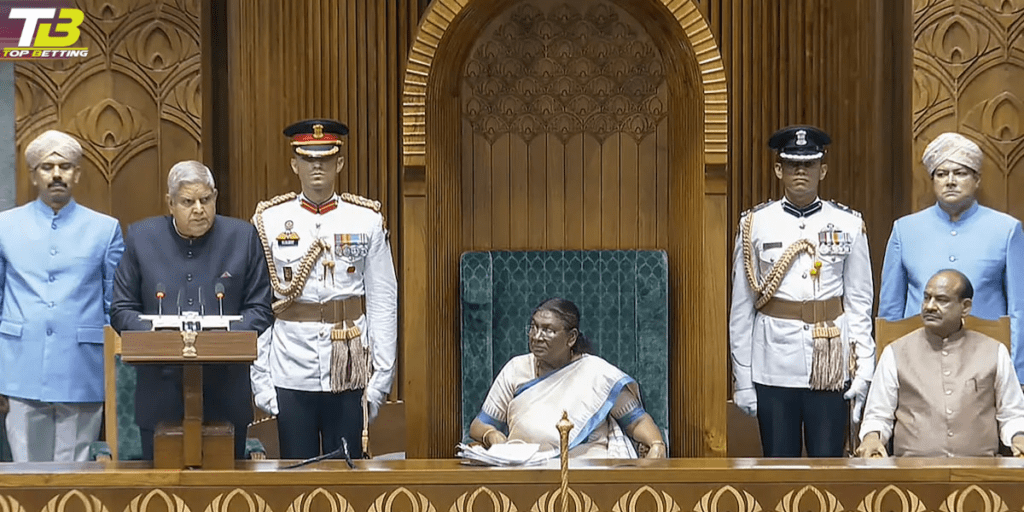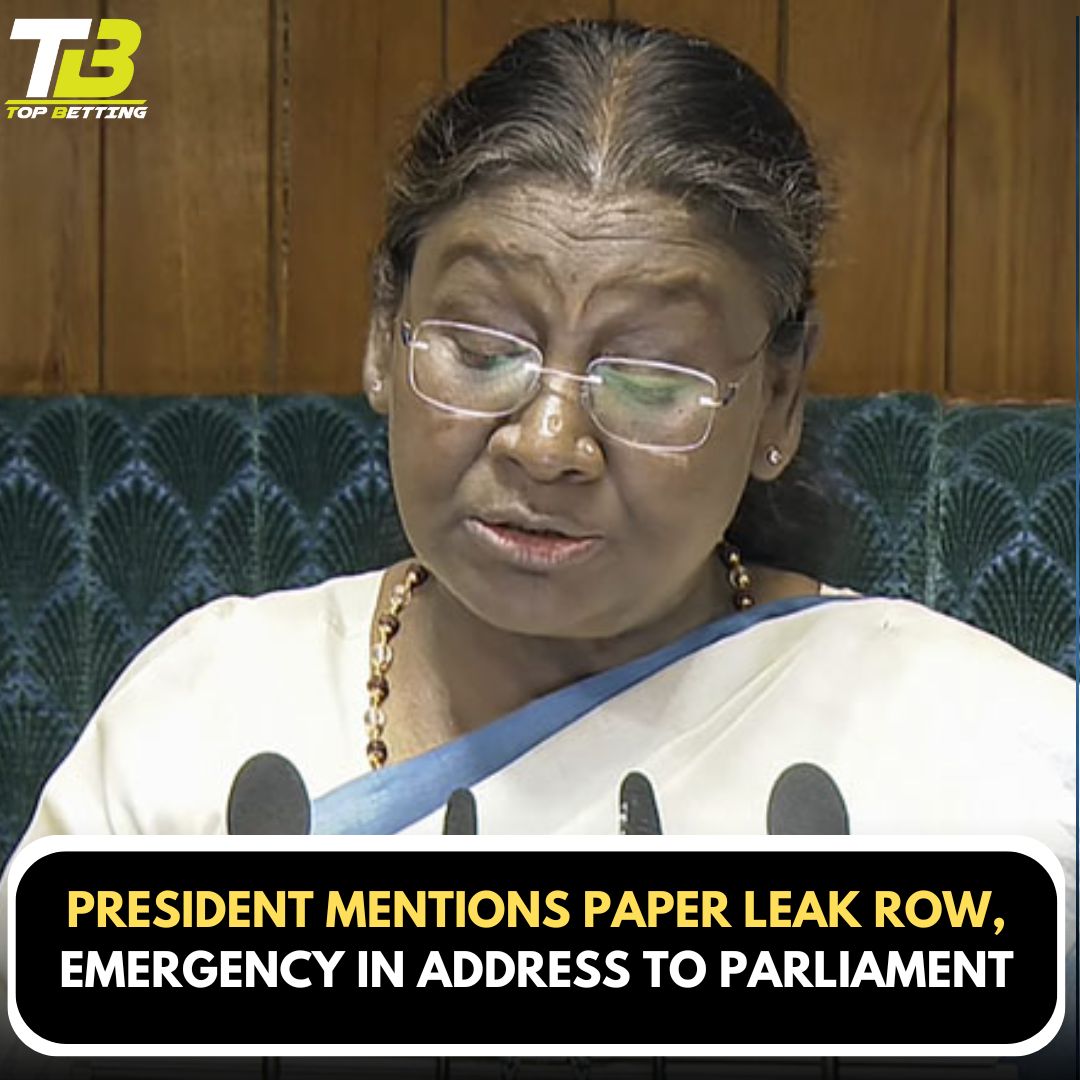
President Draupadi Murmu mentioned
In a much-anticipated speech delivered to the Parliament, the President of the country addressed two critical issues that have been making headlines in recent weeks. The first topic that the President Droupadi Murmu touched upon was the ongoing paper leak row, a scandal that has shaken the foundations of the education system. The President’s careful navigation of this sensitive subject underscored the gravity of the situation and the need for a thorough investigation to maintain the credibility of the academic institutions. By acknowledging the concerns raised by the public while emphasizing the importance of preserving the integrity of the education system, the President sent a strong message of accountability and transparency.
The second major topic addressed by the President was the declaration of a state of emergency in the country. Recognizing the challenges faced by the nation and the need for swift action to ensure the safety and well-being of its citizens, the President reiterated the government’s commitment to maintaining law and order during these turbulent times. The state of emergency, while a drastic measure, was portrayed as a necessary step to address the pressing issues threatening the stability of the country. The President’s reassurance of the government’s dedication to upholding the rule of law provided a sense of security amidst uncertainty.
Significance of President Mentioning the Paper Leak Row and Emergency
The President’s decision to address the paper leak row and the state of emergency in his speech holds immense significance in shaping public discourse and perceptions. By directly acknowledging these contentious issues, the President demonstrated a willingness to confront challenges head-on and engage in open dialogue with the citizens. This transparency in addressing sensitive topics not only fosters trust in the government but also sets a precedent for accountability and responsiveness to public concerns. The President’s mention of the paper leak row and emergency serves as a reminder of the government’s duty to prioritize the interests of the people above all else.
Moreover, the President’s speech serves as a call to action for all stakeholders involved in addressing the repercussions of the paper leak scandal and managing the impact of the state of emergency. It signals a collective responsibility to work towards restoring the public’s faith in the education system and ensuring the safety and security of the nation. By bringing these issues to the forefront of the national agenda, the President’s address paves the way for constructive discussions, reforms, and actions that are crucial for moving forward in a positive direction.
Historical Context of Paper Leaks and Emergencies in the Country
The occurrence of paper leaks and the declaration of emergencies are not unprecedented in the country’s history. Past instances of paper leaks have highlighted systemic vulnerabilities in the examination processes, leading to widespread distrust and disillusionment among students, parents, and educators. These incidents have often exposed flaws in the regulatory mechanisms governing education and underscored the urgent need for reforms to prevent such malpractices in the future. Similarly, emergencies have been declared in times of national crisis, be it due to internal unrest, natural disasters, or external threats, to ensure the maintenance of law and order and protect the sovereignty of the nation.
Understanding the historical context of paper leaks and emergencies provides valuable insights into the recurring challenges faced by the country and the lessons that can be learned from past experiences. By studying the root causes and consequences of these events, policymakers can devise effective strategies to prevent similar crises from arising and mitigate their impact on the society at large. The President’s acknowledgment of this historical backdrop in his address underscores the need for a comprehensive approach to addressing the underlying issues contributing to such crises.
Criticisms and Controversies Surrounding the Paper Leak Row and Emergency
Despite the government’s proactive measures to address the paper leak row and manage the state of emergency, criticisms and controversies have emerged regarding the handling of these crises. Some critics have raised questions about the efficacy of the investigative processes, the accountability of the authorities involved, and the adequacy of the responses to prevent future lapses in examination security. Calls for greater transparency, independent oversight, and public participation in decision-making have been voiced to ensure a more robust and inclusive approach to resolving these issues.
Similarly, concerns have been raised about the impact of the state of emergency on civil liberties, freedom of expression, and the rule of law. Allegations of human rights violations, arbitrary arrests, and suppression of dissent have sparked debates about the balance between national security imperatives and individual rights. The controversies surrounding the paper leak row and emergency underscore the complexities inherent in managing crises and the importance of upholding democratic values, ethical standards, and the principles of good governance.
Conclusion and Future Implications

In conclusion, the President’s address to the Parliament, where he mentioned the paper leak row and the state of emergency, has set the stage for a critical examination of the challenges facing the nation and the actions required to overcome them. By acknowledging these pressing issues and articulating a vision for a more transparent, accountable, and resilient society, the President has signaled a commitment to addressing the root causes of the crises and charting a path towards sustainable solutions. The impact of the President’s speech is likely to reverberate across all sectors of society, prompting introspection, dialogue, and collective action to rebuild trust, restore order, and uphold the values that define the nation.











